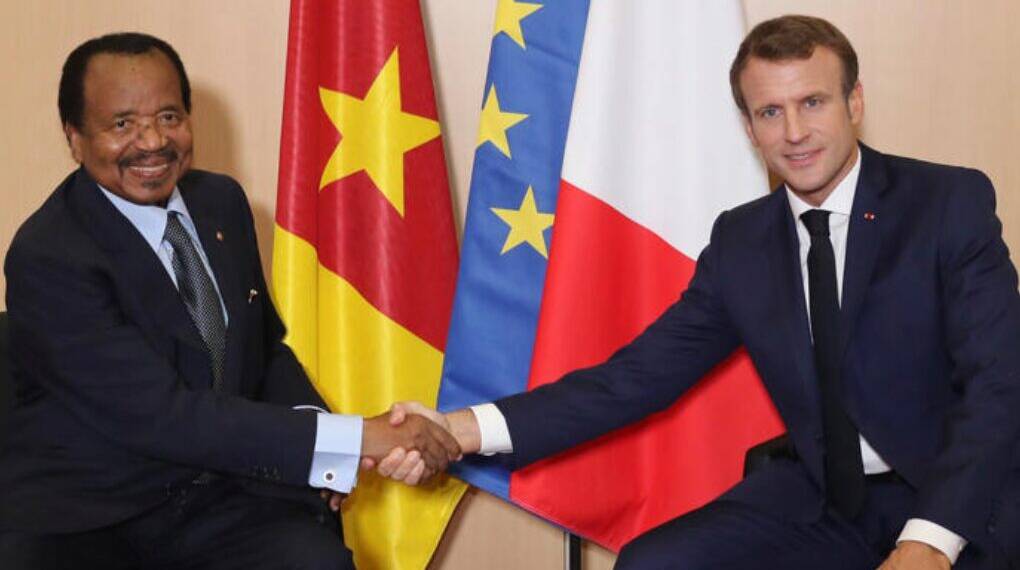French President Emmanuel Macron has formally acknowledged that France waged a war marked by “repressive violence” in Cameroon during and after the country’s struggle for independence. The admission, made in a letter to Cameroonian President Paul Biya and released to the public on Tuesday, represents the first time France has officially recognized these events as a war. However, Macron stopped short of issuing an official apology.
Findings of the Joint Historical Commission
The acknowledgment comes in the wake of a landmark report published in January by a French-Cameroonian commission of historians. The panel, established during Macron’s 2022 visit to Yaoundé, examined France’s role in Cameroon from the end of World War II through 1971.
The report documented a long campaign of violence, including mass forced displacements, the internment of hundreds of thousands of people in camps, and the arming of militias to suppress the pro-independence Union of the Peoples of Cameroon (UPC).
The historians concluded that France’s actions were not limited to the pre-independence period but extended well beyond January 1, 1960, when the French-administered territory officially became independent. With the support of the French government, the newly independent Cameroonian authorities continued military operations against the UPC and its supporters for years afterward.
Macron’s Official Statement
In his letter, dated July 30, Macron acknowledged the commission’s conclusion:
“At the end of their work, the historians of the Commission clearly highlighted that a war had taken place in Cameroon, during which the colonial authorities and the French army carried out multiple forms of repressive violence in certain regions of the country — a war that continued beyond 1960 with France’s support for actions carried out by the independent Cameroonian authorities.”
Macron also accepted France’s responsibility in the deaths of four prominent independence leaders — Ruben Um Nyobè, Paul Momo, Isaac Nyobè Pandjock, and Jérémie Ndéléné — who were killed between 1958 and 1960 during military operations commanded by French forces.
“It is up to me today to assume the role and responsibility of France in these events,” he stated.
Colonial Background and Independence Struggle
Cameroon was originally a German colony until the end of World War I, when it was divided between Britain and France under League of Nations mandates. The French-administered territory saw rising nationalist sentiment in the 1940s and 1950s, culminating in the UPC’s armed struggle for full sovereignty and the reunification of the French and British zones.
The UPC’s resistance met with brutal repression, including scorched-earth campaigns in rural areas, large-scale arrests, and targeted killings of leaders. Even after independence in 1960, the French-backed Cameroonian government of President Ahmadou Ahidjo continued the military offensive against the UPC for more than a decade, with French military and intelligence support.
France’s Reckoning with Its Colonial Past
This acknowledgment is part of Macron’s broader effort to address France’s colonial legacy. In recent years, he has recognized French responsibility for the 1994 Rwandan genocide and the massacre of Senegalese riflemen after World War II. Nevertheless, he has resisted offering formal apologies for other colonial-era crimes, including torture during the Algerian War, citing political and diplomatic sensitivities.
For Cameroon, the recognition is significant but incomplete in the eyes of many. Activists and historians have long called for a formal apology, financial reparations, and a complete opening of French archives related to the independence war.
A Delicate Diplomatic Context
Macron’s letter also comes at a time when France’s influence in Africa is being increasingly challenged. In recent years, French forces have been forced to withdraw from Mali, Burkina Faso, and Niger amid rising anti-French sentiment and shifting alliances toward Russia and China.
Acknowledging past colonial abuses could be seen as part of France’s strategy to rebuild trust with African nations. However, without a formal apology or concrete reparative measures, critics argue that such statements risk being perceived as symbolic gestures rather than genuine reconciliation.
For Cameroon, this acknowledgment may serve as a step toward confronting a violent chapter of its history that has long been downplayed in official narratives. For France, it reflects the growing pressure to confront its colonial record more openly and honestly.
Whether this gesture leads to deeper dialogue, restitution, or reconciliation between the two nations remains uncertain — but it marks a rare moment when a former colonial power has admitted to waging a war against an African independence movement and acknowledged the enduring scars it left behind.








